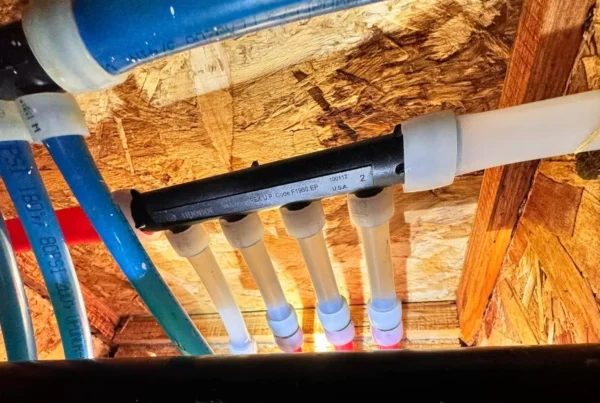Pouring grease down the drain may seem harmless, but it can lead to significant plumbing problems and costly repairs. Whether it’s cooking oil, butter, or leftover fat from frying, disposing of grease through your kitchen sink is a recipe for disaster. Let’s explore why plumbers strongly advise against this practice and how to prevent grease clogs from wreaking havoc on your plumbing.
Why Is It Bad to Pour Grease Down the Drain?
1. Grease Clogs Pipes
When hot grease is poured down the drain, it initially flows as a liquid. However, as it cools, it solidifies and sticks to the inside of your pipes. Over time, this buildup narrows the pipes, obstructing water flow and leading to blockages.
2. Backups and Messes
Thick grease can create backups that affect other parts of your plumbing system, including toilets. These backups can cause unpleasant smells and messy overflows, turning your home into a disaster zone.
3. Damage to Sewer Systems
Grease that escapes your home’s plumbing system can solidify in municipal sewer lines, contributing to massive clogs known as “fatbergs.” These blockages require expensive interventions from city maintenance teams.
4. Expensive Repairs
Once grease hardens inside your pipes, removing it can be a time-consuming and costly process. Professional plumbing services are often needed to fix the damage.
Common Myths About Pouring Grease Down the Drain
- Myth: Running hot water helps grease flow through the pipes.
- Reality: Hot water only moves grease further down the drain, where it cools and solidifies.
- Myth: Adding soap prevents grease buildup.
- Reality: Soap may temporarily break up grease, but it doesn’t stop it from accumulating further down the pipes.
Solutions to Grease Clogs
If your drain is already clogged with grease, here’s how to address the problem:
1. Call a Professional Plumber
For significant grease clogs, it’s best to call a plumber. Professionals use specialized tools like augers and hydro-jetting to locate and clear grease blockages safely and efficiently. Attempting to fix a major clog on your own can damage your pipes or worsen the problem.
2. Routine Maintenance
Preventing grease clogs is easier and cheaper than fixing them. Regular maintenance ensures your drains stay clear and functional.
How to Prevent Grease Clogs
- Proper Grease Disposal
- Let grease cool and solidify in a container before throwing it in the trash.
- Use paper towels to wipe grease off pans and dishes before washing them.
- Hot Water Rinses
- After cooking, fill your sink with hot water and let it flow through the drain. This practice helps flush out small particles and keeps your pipes clear.
- Avoid Food Scraps
- Dispose of food scraps in the trash, not the sink. Use a strainer to catch small bits that might otherwise go down the drain.
- Occasional Cleaning
- Pour a mixture of boiling water and baking soda down the drain once a week to break up small grease particles.
- Bleach Sanitization
- Occasionally sanitize your drains with a small amount of diluted bleach to prevent bacteria and grease buildup.
Why Routine Maintenance Matters
Regular maintenance reduces the likelihood of grease clogs and ensures your plumbing system runs smoothly. Simple habits like avoiding grease disposal in the sink and keeping drains clean can save you from the inconvenience and expense of a plumbing emergency.
When to Call Super Brothers
If you’ve already poured grease down the drain and are facing clogs, it’s time to act. Super Brothers offers professional plumbing services to safely remove grease blockages and restore your system to full functionality. Whether it’s routine maintenance or an emergency repair, our team is here to help.
Final Thoughts
Pouring grease down the drain might seem convenient, but the long-term consequences are anything but. By adopting proper disposal habits and maintaining your plumbing system, you can avoid grease clogs and the costly repairs that come with them. Remember, when in doubt, consult Super Brothers for expert advice and service to keep your plumbing running smoothly.



